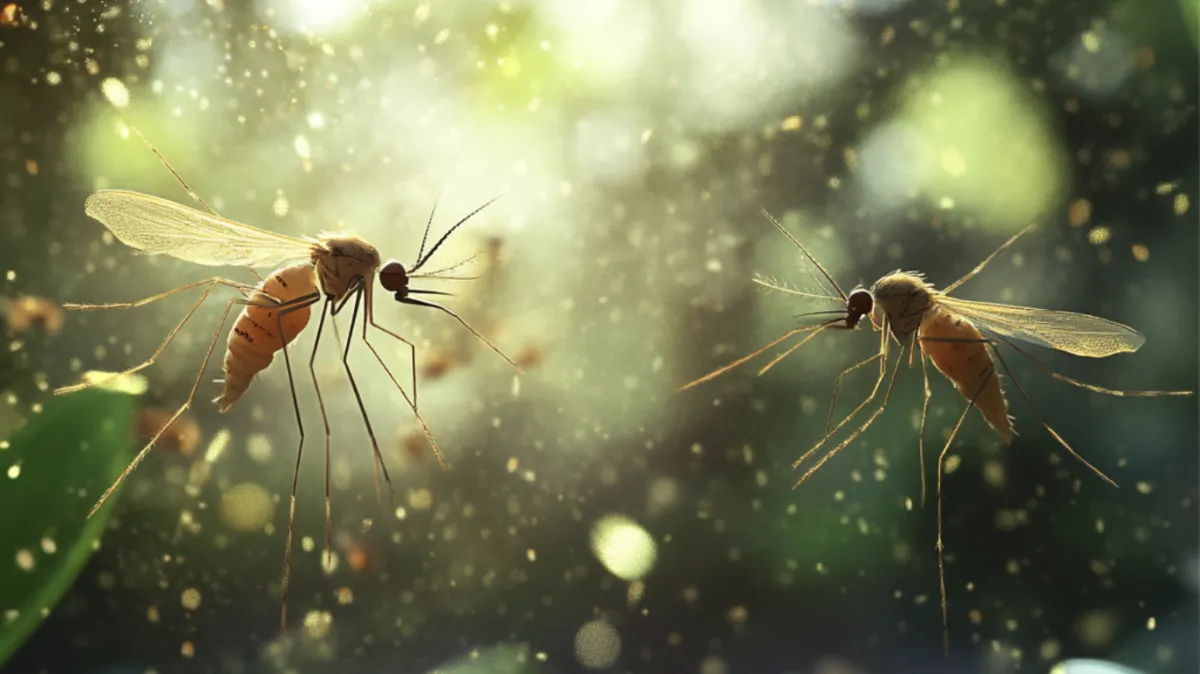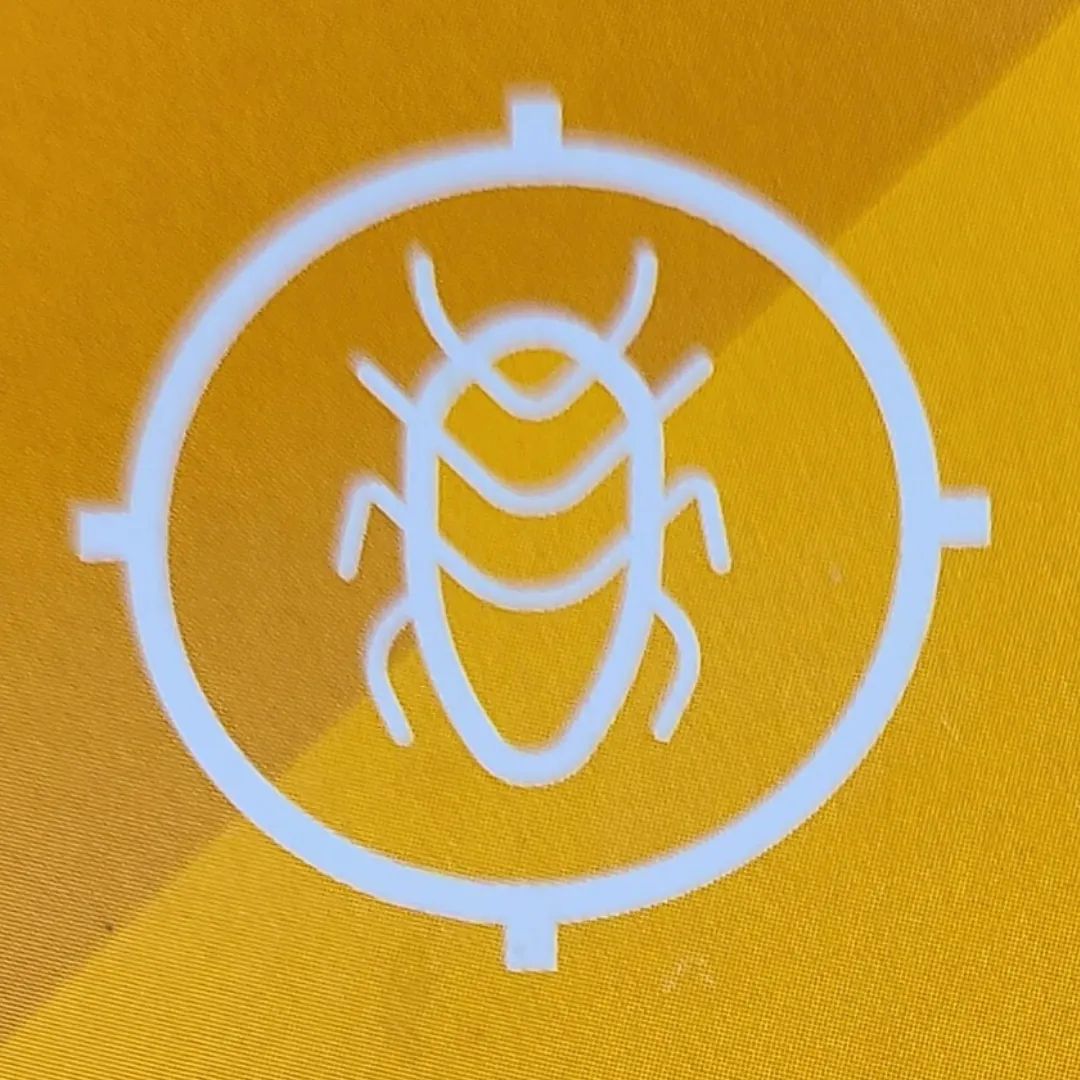The Local Ottawa Journal
WAYNE'S PEST JOURNAL

Enjoy a Pest-Free Summer: Mosquito and Tick Control
Understanding the Risks: The Health Hazards of Mosquitoes and Ticks
Mosquitoes and ticks are more than just a nuisance during the summer months; they pose significant health risks that can affect your family and pets. Understanding these risks is the first step in creating a safe, pest-free environment around your home. Here’s a detailed look at the dangers these pests bring and why controlling their populations is vital:
Mosquito-Borne Diseases:
West Nile Virus: Primarily transmitted to humans through the bite of an infected mosquito, causing symptoms ranging from mild fever to severe neurological illnesses.
Zika Virus: Known for its transmission from mosquitoes to humans, Zika can cause fever, rash, joint pain, and has been linked to birth defects in babies born to infected mothers.
Chikungunya: This virus is transmitted through mosquito bites and leads to sudden onset fever, severe joint pain, and swelling.
Dengue: Marked by high fever, severe headache, and joint pain, Dengue is a serious disease risk in areas with large mosquito populations.
General Health Implications:
Allergic Reactions: Both mosquito and tick bites can cause severe allergic reactions in sensitive individuals. These reactions can be immediate or delayed, complicating treatment and management.
Secondary Infections: The bite sites can become infected, especially if not properly cared for, leading to additional health complications beyond the initial bite.
Elimination of Breeding Grounds: Key Strategies for Reducing Mosquito and Tick Populations
Controlling the breeding environments of mosquitoes and ticks is a crucial step in minimizing their presence in your yard. These pests require specific conditions to breed, and by disrupting these conditions, you can significantly reduce the risk they pose. Here’s how to effectively manage these breeding grounds:
Water Management for Mosquito Control:
Remove Standing Water: Regularly inspect your property for areas where water accumulates, such as flower pots, bird baths, and pet water bowls. Empty and clean them at least once a week to prevent mosquitoes from laying eggs.
Maintain Gutters and Drains: Ensure that all gutters and drainage systems are free from clogs. Standing water in clogged gutters provides an ideal breeding site for mosquitoes.
Tarp Management: If you use tarps to cover firewood or other items, make sure they are taut and do not collect water. Sagging tarps can create pockets of moisture that are attractive to mosquitoes.
Properly Store Unused Containers: Store containers such as buckets, barrels, and cans upside down to prevent water collection.
Landscaping Techniques to Reduce Tick Habitats:
Regular Mowing: Keep your lawn mowed and your yard free of tall grasses. Ticks are less likely to survive in short vegetation because it exposes them to more extreme environmental conditions.
Trim Vegetation: Cut back tree branches and shrubs around the edge of your lawn. This increases sunlight, which helps to keep the yard dry and less hospitable to ticks.
Clear Leaf Litter and Brush: Remove leaf litter, tall grasses, and brush around homes and at the edges of lawns, reducing the desirable habitat for ticks.
Use Mulch in Strategic Areas: Place wood chips or gravel between lawns and wooded areas to restrict tick migration into recreational areas.
Create Physical Barriers:
Fence Your Yard: Fencing can help keep wildlife that may carry ticks away from your living areas.
Install Gravel or Wood-Chip Barriers: For areas prone to ticks, creating a physical barrier of wood chips or gravel can prevent ticks from crossing into play or garden areas from surrounding wooded parts.
Enhanced Strategies for Elimination of Breeding Grounds
Effectively managing the breeding grounds of mosquitoes and ticks involves detailed attention to both water management and landscaping, along with the creation of physical barriers to limit access. Here's a deeper dive into these strategies to help ensure your environment remains inhospitable to these pests:
1. Advanced Water Management Techniques:
Systematic Water Checks: Implement a routine schedule to check for standing water, which is critical after rainfall. Areas of concern include not only pet bowls and plant saucers but also children's playsets and unused flowerpots.
Gutter System Upgrades: Consider installing gutter guards to prevent leaves and debris from accumulating and clogging the gutters, thereby eliminating a common mosquito breeding site.
Proper Sloping and Drainage: Ensure the landscaping facilitates proper drainage, preventing water from pooling around the foundation of your home or in your yard.
2. Comprehensive Landscaping Tactics:
Eco-friendly Ground Cover: Introduce ground covers that dry quickly and discourage the damp environments that ticks favor. Consider using cedar mulch, which acts as a natural repellent for ticks and certain types of insects.
Barrier Plants: Plant tick-repelling plants around the perimeter of your yard. Examples include garlic, marigolds, and chrysanthemums, which can deter both ticks and mosquitoes.
Debris Management: Maintain a schedule for removing organic debris such as fallen branches and leaves, which can provide shelter and breeding spots for ticks.
3. Proactive Wildlife Control Measures:
Secure Wildlife Feeders: If you use bird or pet feeders, place them away from your house and over concrete or tiled surfaces that are easy to clean, reducing the accumulation of seeds and residues that attract rodents and other small mammals known to carry ticks.
Regular Property Audits: Conduct seasonal audits of your property to identify new risk areas for pest breeding and implement corrective measures promptly.
By adopting these proactive and comprehensive strategies, you can significantly reduce mosquito and tick populations around your home, ensuring a safer, more enjoyable outdoor environment all summer long. For more tips on pest control and to learn about our eco-friendly solutions, visit our website.

Wayne's Pest Extermination
1159 Brasseur Cr.
Ottawa
Ontario
K4A 4Y5
At Wayne's Pest Extermination, we understand the importance of keeping your home or business free from unwanted pests. Serving Ottawa and the surrounding areas, our team of expert exterminators is dedicated to providing effective and environmentally responsible pest control solutions tailored to your needs.
© Copyright 2023 Wayne's Pest Extermination in Ottawa. All rights reserved.